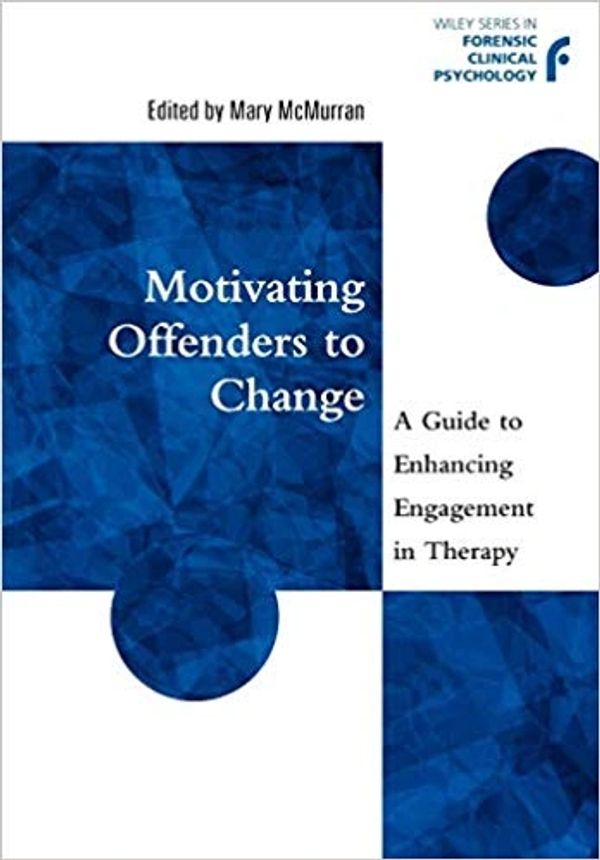Motivational Interviewing & Corrections
In the News
Magic Valley probation officers try new approach
Reporting for Work Where You Once Reported for Probation
Court-Mandated Substance Abuse Treatment: Exploring the Ethics and Efficacy
Local probation and parole officers have shifted their focus in recent years from the traditionally reactive approach taken by officers to a more proactive, personal approach that’s heavy on conversations and self-reflection.
Redefining the Role of Probation and Parole Officers to Combat Recidivism
Keeping people out of crisis: Unit combines law enforcement, mental health worker
Every year, it’s estimated that 650,000 offenders are released from the nation’s prisons, according to the U.S. Department of Justice. However, national recidivism rates remain high, with some studies finding that two-thirds of inmates are re-arrested.
Keeping people out of crisis: Unit combines law enforcement, mental health worker
Keeping people out of crisis: Unit combines law enforcement, mental health worker
“The key to motivational interviewing is, it really is about behavior change and it’s about helping a person understand whether or not their behavior is in alignment with what their values are.”
Published Studies
Motivational Interviewing Fidelity in a Community Corrections Setting
Counselor MI consistent relational skills were an important predictor of client treatment initiation. Counselor behaviors such as empathy and MI spirit may be important for developing client rapport with people in a probation setting.
Motivational Interviewing for Probation Officers: Tipping the Balance Toward Change
This article will suggest several benefits from the importation of Motivational Interviewing into
probation practice. This article posits eight reasons to consider the Motivational Interviewing
approach.
Motivational Interviewing: A useful skill for correctional staff?
The following paper will provide: a description of what MI is; what we know about how it works; a discussion of MI training and implementation within organisations, and some challenges when engaging in MI within a correctional setting.
Motivational interviewing with offenders: A systematic review
MI can lead to improved retention in treatment, enhanced motivation to change, and reduced offending, although there are variations across studies. To advance the study of MI with offenders, a theory of change needs to be articulated on which testable hypotheses may be based. The integrity of treatment in its application needs to be assured. Based on these foundations, more outcome research is needed to examine who responds to what type of MI in relation to treatment retention, readiness to change, and reconviction.
Motivational Interviewing as a Supervision Strategy in Probation: A Randomized Effectiveness Trial
total of 380 probationers were assigned to officers during a 4-month period; offender outcomes included the probability of having a drug-positive urinalysis or an otherwise poor outcome after 6 months. The MI training program improved officer skill as measured by standardized interactions. However, after controlling for baseline characteristics, probationer outcome did not vary by training group, nor did officer MI competence predict outcome. Results are discussed in terms of the role of MI in the overall probation system.
Probation Officer–Probation Agency Fit: Understanding Disparities in the Use of MI
The current study focused on interactions between 834 probation officers and their agencies (six probation jurisdictions) by examining alignment between the use of client-centered communication strategies, perceived agency support, and agency climate. Results showed a significant, negative linear relationship between probation officer-agency alignment with regard to EBPs and agency context.
The Right to Silence and the Permission to Talk: Motivational Interviewing and High-Value Detainees
Overall, this research provides unique evidence for the use of specific skills and approaches that can increase or decrease HVD engagement and information provided.
Study Provides Insight into 'Rapport-Building' During Victim Interviews
The observing rapport-based interpersonal techniques (ORBIT) framework analyses rapport-based interviewing skills along two dimensions: motivational interviewing (MI) skills and interpersonal competence (use of adaptive interviewing behaviors and absence of maladaptive interviewing behaviors).
.
Probation officer lauded to performance
Probation officer lauded to performance
Probation officer lauded to performance
Stager began to call and text the individual. He responded to her messages with his own calls and texts. They continued communicating throughout the evening. She credits her training in evidence based practice, which includes motivational interviewing.
.
Probation officer lauded to performance
Probation officer lauded to performance

.
.
Probation officer lauded to performance
.

.
.
.
.

..
.
.
.

.
.
.
.

.
Books


Copyright © 2025 eSym - All Rights Reserved.

